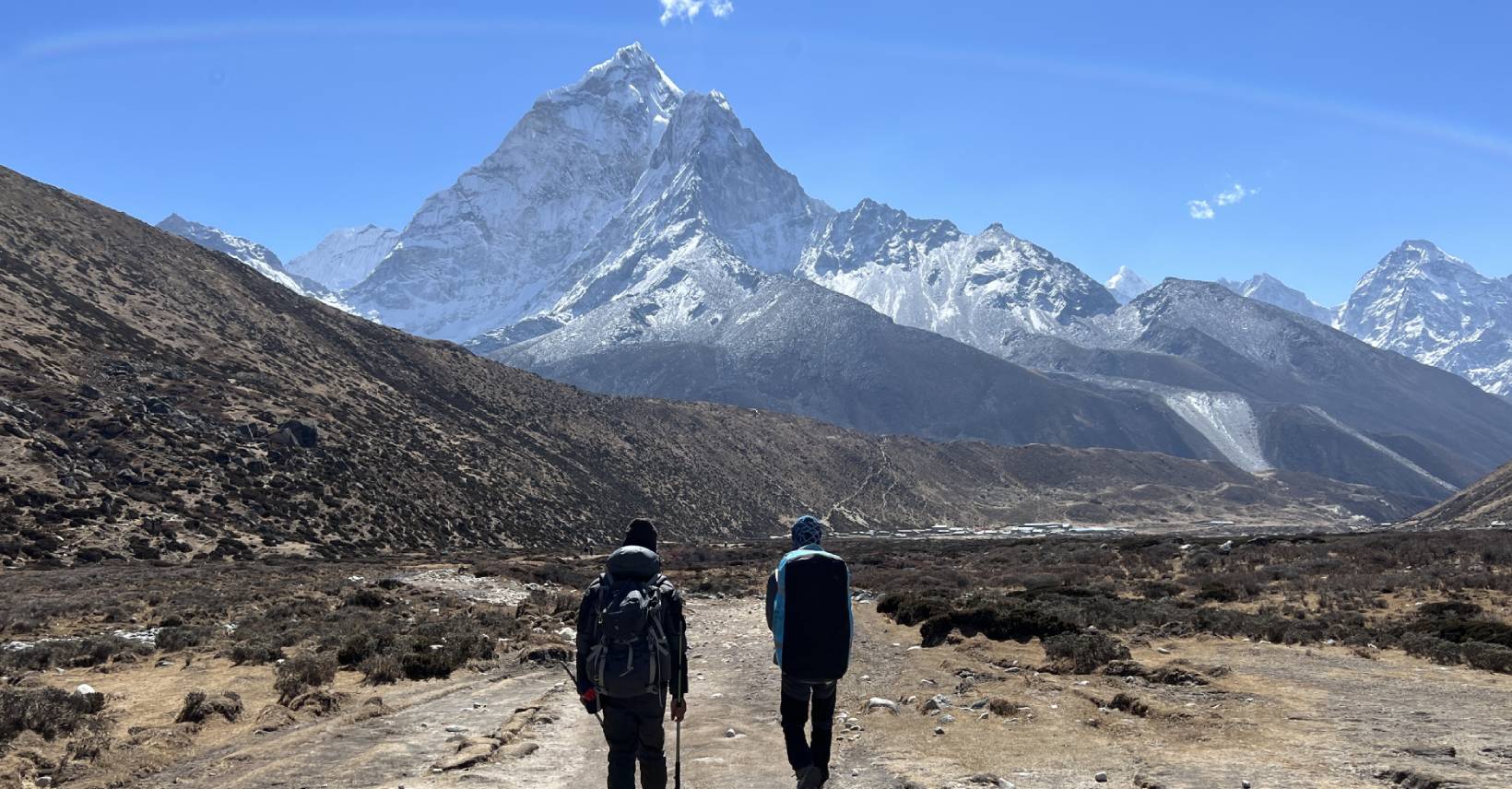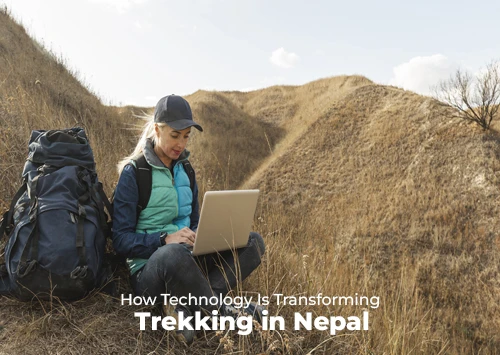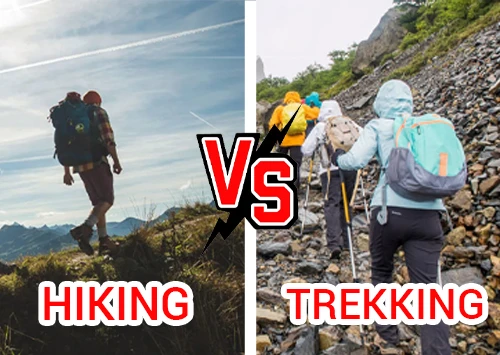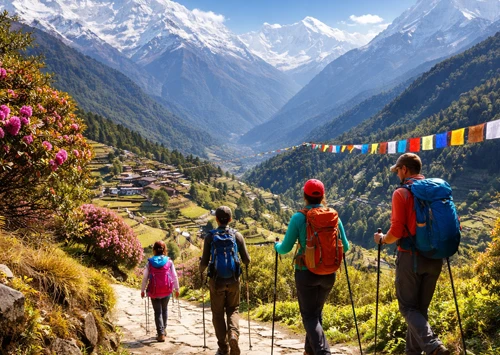Introduction to Guides and Porters in Nepal.
Guides and Porters are essential for trekking and mountaineering expeditions in Nepal. They provide valuable support and assistance to trekkers and climbers, ensuring their safety and helping them navigate through the challenging terrain of the Himalayas.
Guides in Nepal are experienced professionals who have extensive knowledge of the local culture, geography, and terrain. They are trained to navigate through the trails, provide guidance on altitude sickness, and offer insights into the cultural and historical significance of the places you visit. They also help arrange accommodation, food, and transport during the trek.
Porters, on the other hand, are responsible for carrying heavy loads of trekking equipment, food, and supplies. They are typically hired by trekking groups and are known for their exceptional strength and endurance. They are crucial in ensuring that trekkers have everything they need during the expedition.
It is important to note that both guides and porters should be hired through a reputable trekking agency. Trekking Planner Nepal ensures that they are adequately trained, insured, and paid fairly for their services. It also helps to promote responsible tourism and sustainable trekking practices in Nepal.
Why are guides and porters required for trekking, and what is their importance?
Guides and porters play a crucial role in ensuring the success and safety of trekkers during their expeditions in Nepal. Here are some of the reasons why Trekking Planners in Nepal suggest that guides and porters are important for the treks.
- Safety: Guides are trained to identify and manage risks associated with trekking, such as altitude sickness, weather conditions, and trail hazards. They can also provide first aid in cases of injuries or illnesses. Porters help reduce the risk of injuries to trekkers by carrying heavy loads and allowing them to focus on the trek.
- Navigation: Trekking in Nepal can be challenging due to the complex terrain and ever-changing weather conditions. Guides are experienced in navigating the trails, which helps trekkers avoid getting lost or going off-route. They also have knowledge of alternative routes in case of emergencies or unexpected challenges.
- Cultural and Historical Insights: Nepal has a rich cultural heritage, and trekking offers an opportunity to experience it firsthand. Guides can provide insights into the local culture, traditions, and history of the places you visit. This enhances the overall trekking experience and adds to the richness of the journey.
- Logistics: Trekking in Nepal requires careful planning and coordination of logistics, such as accommodation, food, and transport. Guides can help with arranging these logistics, ensuring that trekkers have a comfortable and hassle-free experience. Porters also play a crucial role in carrying essential equipment and supplies, making the trek easier for the trekkers.
In summary, guides and porters are essential for a successful and safe trekking experience in Nepal. They provide valuable support and assistance, making the journey more enjoyable and rewarding for trekkers.

Why was the government's decision to ban the solo trek and make having a guide and porter compulsory a must-do decision?
According to Trekking Planner Nepal The decision by the government of Nepal to ban solo trekking and make it compulsory to hire a guide and porter was a necessary step towards promoting safety and responsible tourism in the country. Here are some of the reasons why:
- Safety: Trekking in Nepal can be challenging and risky, especially for solo trekkers who may not have adequate experience or knowledge of the terrain. Having a guide and porter can help reduce the risk of accidents, injuries, and illnesses. Guides are trained to manage risks and provide first aid, while porters can help carry heavy loads and reduce the strain on trekkers.
- Promoting Responsible Tourism: The decision to make it compulsory to hire a guide and porter is part of the government's efforts to promote responsible tourism in Nepal. It helps to ensure that trekkers are aware of the cultural and environmental sensitivities of the places they visit and that they are contributing to the local economy by hiring local guides and porters.
- Protecting the Environment: Trekking in Nepal can have a significant impact on the environment, especially in areas that are ecologically fragile. Having a guide and porter can help ensure that trekkers follow responsible trekking practices, such as leaving no trace and avoiding damage to natural habitats.
- Supporting the Local Economy: Hiring a guide and porter provides employment opportunities for local people, who are often from economically disadvantaged communities. It helps to support the local economy and promote sustainable tourism practices.
In summary, the decision by the government of Nepal to ban solo trekking and make it compulsory to hire a guide and porter was a necessary step towards promoting safety, responsible tourism, environmental protection, and supporting the local economy.
What are the qualifications required to become a guide and porter in Nepal?
To become a guide or porter in Nepal, the qualifications required can vary depending on the employer or organization you are applying to work for. However, there are some general requirements and skills that are necessary for these roles.
Qualifications for becoming a guide in Nepal.
- Must have a license from the Ministry of Tourism and Civil Aviation.
- Must have completed the basic and advanced mountaineering courses provided by the Nepal Mountaineering Association (NMA).
- Must have fluency in English and other foreign languages.
- Knowledge of mountain weather, geology, flora, and fauna
- First aid training and experience
- Good communication and interpersonal skills
Qualifications for Becoming a porter in Nepal.
- No formal qualifications are required, but prior trekking experience is preferred.
- Good physical fitness and endurance are needed to carry heavy loads at high altitude.
- Ability to communicate in Basic English
- Familiarity with the trekking trails and routes in the region
- Willingness to work in a team and follow instructions.
It's important to note that working as a porter or guide in Nepal can be a challenging job due to the rugged terrain, altitude, and weather conditions. Employers may also have additional requirements based on their specific needs, so it's advisable to check with them before applying for the job.

Why select Trekking Planner Nepal for Guides and Porters?
Selecting Trekking Planner Nepal for guides and porters is important for several reasons:
- Safety: Trekking planner Nepal is more likely to prioritize safety measures for their clients and staff. We often provide proper equipment, insurance coverage, and training for their guides and porters, which can minimize the risks of accidents or emergencies during trekking or mountaineering expeditions.
- Fair Wages and Working Conditions: Trekking Planner Nepal provides fair wages, meals, and accommodation for their guides and porters. We also have policies in place to ensure that their staff is not overworked or exploited, which can lead to better morale and job satisfaction.
- Professional Development: Working for Trekking Planner Nepal can provide opportunities for professional development and career advancement for guides and porters. They may have access to additional training and certification programs, which can improve their skills and increase their chances of getting better-paying jobs in the future.
- Reputation: Working for Trekking Planner Nepal can also enhance the reputation and credibility of guides and porters. Clients are more likely to trust and choose trusted and reputed travel agencies that have experienced and hardworking guides and porters, which can lead to more job opportunities and higher earnings.
Overall, selecting Trekking Planner Nepal for guides and porters can provide a safer and more rewarding work environment, better wages and benefits, and opportunities for career growth and advancement.
What is an ideal tips for a guide and porter?
Tipping is a common practice in Nepal's trekking and mountaineering industries, and it's a way to show appreciation for the hard work and dedication of guides and porters. While there is no fixed amount for tipping, an ideal tip for a guide and porter can range from 15-20 Percentage of the total trip cost, depending on the level of service provided and your satisfaction with their work.
It's important to tip at Everest Base Camp, and it is mandatory. A personal choice should be based on your own experience and satisfaction with the services provided in other parts of the world except Everest. You may choose to tip more or less than the suggested range, depending on your budget and the level of service provided by the guide and porter.
It's also advisable to tip more to the lead guide and distribute the tips equally among all the assistants, secondary guides, sweepers, and porters who worked with you during the trip. If you have any questions or concerns about tipping, you can always discuss it with the senior guide or the office representative of Trekking Planner Nepal, who can provide more guidance on the appropriate amount to tip.
Lead Guide (20 Dollars per day).
Assistants Guide (12–15 Dollars per day).
Porter (10–12 Dollars per day).
Cost and weight limt for just the guide and porter service?
The weight limit for porters during trekking can vary depending on various factors such as the region, altitude, terrain, and the specific company or organization providing the porter services.
However, as a general rule of thumb, the ideal weight limit for porters during trekking is around 20-25 kg (44-55 pounds). This weight includes the porter's own gear and equipment.
It's important to note that porters are human beings, not machines, and carrying excessive weight can lead to serious health problems such as back pain, muscle strain, and fatigue. Therefore, it's crucial to respect the weight limit and avoid overloading the porters. If you have a lot of gear or equipment to carry, consider hiring additional porters to distribute the weight evenly and ensure the safety and well-being of everyone involved.
Guide service per day would be around 22–30 Dollars Per Day (depending on the quality of the guide and the trekking route).
Porter service 18–22 Dollars Per Day (depends upon the quality and trekking route)
Facilities provided by Trekking Planners in Nepal for Guides and Porters.
Trekking planner Nepal usually provides several facilities and benefits to their guides and porters, including:
- Insurance Coverage: Trekking planner Nepal typically provide medical and accidental insurance coverage for their guides and porters, which can help cover the cost of any injuries or illnesses that may occur during the trip.
- Proper Equipment: Trekking planner Nepal usually provide proper trekking equipment, like Trekking Tents, Sleeping Bags, Backpacks, and Trekking Poles, to their guides and porters. They may also provide warm clothing and other essential gear for high-altitude trekking or mountaineering expeditions.
- Training and Certification: Trekking Planner Nepal often provide training and certification programs for their guides and porters, which can improve their skills and knowledge in trekking, mountaineering, first aid, and communication. This can also increase their job prospects and earning potential in the industry.
- Fair Wages and Working Conditions: Trekking planner Nepal typically provide fair wages, meals, and accommodation for their guides and porters. They also have policies in place to ensure that their staff is not overworked or exploited, which can lead to better morale and job satisfaction.
- Professional development: Trekking Planner Nepal, provides opportunities for professional development and career advancement for their guides and porters. They may offer leadership or management training programs or promote experienced staff to higher positions within the organization.
Overall, the facilities provided by Trekking Planner Nepal help ensure the safety and well-being of their guides and porters, improve their skills and earning potential, and promote a more sustainable and ethical Trekking Industry in Nepal.





